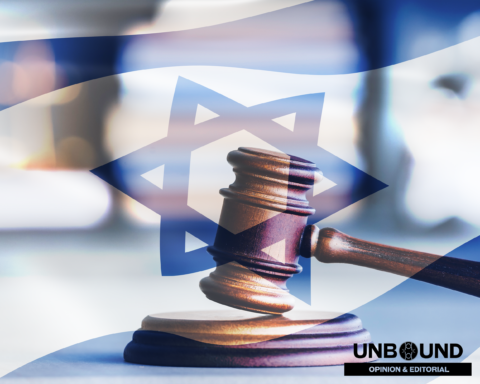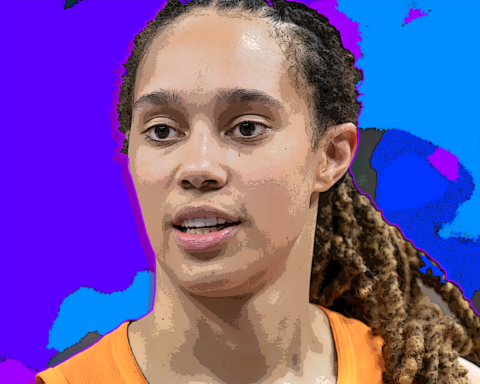An Advent Conversation with Chosen?

As Walter Brueggemann says on the very first page of his recent book Chosen?, “Reading the Bible with reference to any contemporary issue is at best tricky and hazardous.” Reading the Bible in Advent in light of the Israeli-Palestinian conflict is both natural and dangerous.
Chosen? is not an Advent book, but I’m aware that many of us think of Bethlehem, Palestine, this time of year. We sing hymns about a child born in an ancient city, most of the time without much thought of today’s Bethlehem. Perhaps to remind us that Bethlehem is more than an idea from our scriptures and hymns, the municipality of Bethlehem put together this video of messages of peace.
Advent is a time of fear and hope. It is a time when we as Christians in the northern hemisphere spend long nights in shadow and look forward to that shining star on Christmas that is the Christ child. Some of us live where winter means green, and some of us live where winter means white (or just dead and brown). Advent brings those of us raised in the Christian tradition a series of stories as familiar as our own Christmas decorations.
___________________________________________
When we celebrate the birth of the Christ child in a town named Bethlehem, we might remember that is a real place with real people.
___________________________________________
Despite their familiarity, it is important for 21st century American Christians to remember that these are still texts from a land that is not our own, from another century. It is our Bible, but the biblical lands are not, unless we are Palestinian or Israeli, ours. As Dr. Melody Knowles taught me, reading the Old Testament is almost always a cross-cultural experience.

Photo Credit: Laura Cheifetz
My only trip to Israel/Palestine was in 2014 with the Presbyterian Peacemaking Program’s Mosaic of Peace Conference. I had not tried very hard to go before, in part because what I know about the region was shaped by learning about the occupation and settlements as ongoing violations of international law (Biased? Sure. At least I’ll admit it.). My father’s family is Jewish, largely secular. My interpretation of my family’s Jewishness is that for us, Jewishness is not necessarily contingent on a Jewish state but instead thrives in a secular society with ample civil rights protections for religious and ethnic minorities. (My family members may disagree with me, but this is how I have understood us.) I’m well aware of the funding from my own government that goes to support Israel’s security. I’m not against security, but as an American, I’m familiar with the ways in which national security can hinge on the infringement of the rights of others. Lots of countries do it, but I don’t have to like it.
I get nervous when American Christians appropriate this ‘chosen’ status, because Christians in the U.S. are culturally dominant, and because Christians have done awful things in the name of Christ, like displacement, theft, enslavement, and genocide. It’s easy to justify one’s actions when you believe God has chosen your people.
___________________________________________
I get nervous when American Christians appropriate this ‘chosen’ status, because Christians in the U.S. are culturally dominant, and because Christians have done awful things in the name of Christ.
___________________________________________

Photo: Laura Cheifetz
This appropriation of chosen-ness by Christians is problematic, and Brueggemann discusses the dangers of supersessionism and American domination. I was drawn, however, to a preceding discussion in Chosen? about whether or not the status of God’s chosen people is irrevocable. Can the actions of a people, according to the Scripture, cause this status to be retracted? Is being chosen an unconditional status? Brueggemann says that there is more than one answer in the biblical texts, and he asks to what extent such a theological claim has the capacity to evolve into an ideological claim that would impact present-day political realities. He discusses the land as a gift with strings attached.
(This is not to say that any given country shouldn’t exist, nor am I saying that a citizen of one country has the right to decide what’s best for another country. Quite the contrary. I raise this as a moment of reflection. I believe it is possible to critique a country without wishing its destruction, and to make room for those whose worldview sees the ideological as theological.)
Of course, God has a habit in the biblical text of choosing the most vulnerable: the poor, widows, orphans, and immigrants.
___________________________________________
Can the actions of a people, according to the Scripture, cause this status to be retracted? Is being chosen an unconditional status?
___________________________________________
My real point, though, is about a persistent presence in the biblical text and today: the unchosen. On p. 22, Brueggemann begins discussing the awareness in the text of other peoples. Amos 9:7 states:
Are you not like the Ethiopians to me,
O people of Israel? says the Lord.
Did I not bring Israel up from the land of Egypt,
and the Philistines from Caphtor and the Arameans from Kir?

Photo: Ray Roberts
The biblical witness does not claim other peoples as equivalently chosen, but they are not ignored.
Our Advent wait for the Christ child requires our attention to those who are God’s chosen, particularly the poor. We have angel giving trees and food drives, toy drives and options to give goats to families in the developing world. But as Christians, our scriptures complicate the matter. Not only in the wealth of the scriptures we share with Judaism, but in our own texts as well, we are pushed to redefine who is chosen and who is not. Peter has a vision in which the unclean was rendered acceptable, from which we might extrapolate that the people we previously defined as unacceptable outsiders might perhaps also be chosen. The magi are welcomed as they greet a young Jesus. A Samaritan woman with a questionable sexual history becomes an evangelist. Perhaps we might concern ourselves a little less with what another religious tradition is discussing and think a little harder about what our religious tradition is upholding.
___________________________________________
It’s easy to justify one’s actions when you believe God has chosen your people.
___________________________________________
Bethlehem is lovely, with the best falafel place I’ve ever been to, but it is in occupied Palestine. There are bullet holes in the Church of the Nativity from the 2002 siege. The Christ child was born in a place that is taken care of by Christians and others, but is vulnerable to contemporary political and military conflicts. Bethlehem is divided from neighboring fields and from its close neighbor Jerusalem by an enormous wall, erected one day while children were away at school.

Photo: Laura Cheifetz
What does it mean for us to prepare for the coming of a child whose home is now split by a concrete wall? Do we, out of relationships with and commitments to our Jewish sisters and brothers, and our belief in the self-determination of other countries, shrug? Or do we, out of love for all of creation, acknowledge where the money came from for that wall, and work for the reconciliation of the whole world? We have our own walls, whether they be Indian reservations created thanks to white greed and broken treaties, or whether they lay along the border between Mexico and the U.S., attempting to keep out the poor and desperate created by our own colonialism, domineering trade agreements, and free flow of guns to the other side of the border.
When we celebrate the birth of the Christ child in a town named Bethlehem, we might remember that is a real place with real people. The vulnerability of a baby might remind us to become human rights advocates for all, not just for some. Jesus was a Jew from Palestine, for a time a refugee in Egypt. God chose his mother, a young unmarried Jewish girl from Palestine. But that specificity doesn’t mean God stopped choosing others.
___________________________________________
God chose his mother, a young unmarried Jewish girl from Palestine. But that specificity doesn’t mean God stopped choosing others.
___________________________________________

Photo: Laura Cheifetz
While I have my mystical streak, I was very aware that as I walked the same areas that Jesus walked, we were separated by centuries. This place was holy, sure, but many places are holy, because they are created by God. God is present in them, not just in the Church of the Nativity or the Garden of Gethsemane, but on the streets, in the fields, in the forests and deserts… God is everywhere, and yet God chose the specificity of being born a boy-child in Palestine of the Jewish people.
Advent is a time of hope, and when I visited Israel/Palestine, I found that despite our own American assumptions of the inevitability of ongoing conflict in the region, the people there have hope. Those who have been refugees since 1948, without land, or housing, or security to call their own have hope. Even those who left the U.S. and Europe to live in Israel and face the possibility of terrorist violence have hope.
Perhaps the greatest gift we as the church can give the world this Christmas is to live in hope instead of fear, live in abundance instead of scarcity, live into choosing more instead of excluding those who are different.
*****
AUTHOR BIO: The Rev. Laura Mariko Cheifetz is a double pastors’ kid of Japanese and white Jewish descent born in California, and raised in Oregon and Washington. After stints in New York City (Presbyterian United Nations Office), Chicago (McCormick Theological Seminary), San Francisco (pastoral internship), and Atlanta (The Forum for Theological Exploration), she now lives in Louisville and works as the Vice President of Church & Public Relations for the Presbyterian Publishing Corporation.





Unbound Social